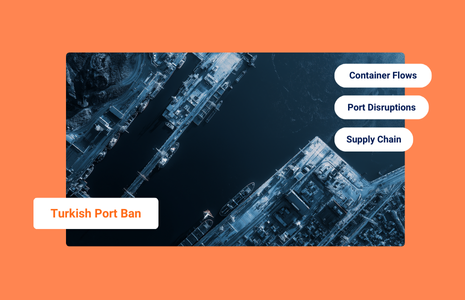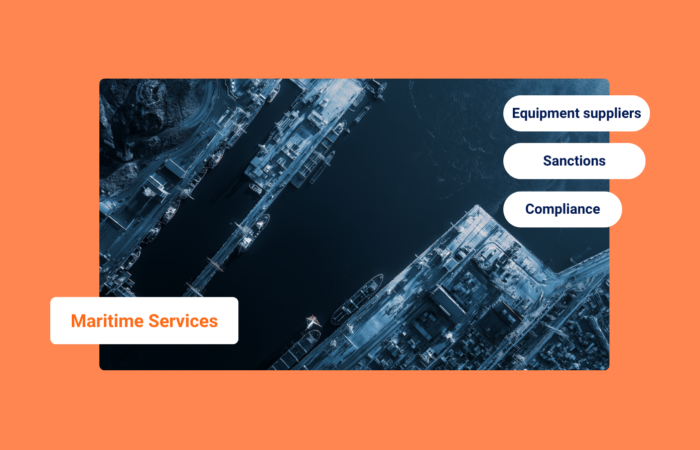Turkish Port Ban Could Seriously Disrupt Short-Sea Container Trades

What’s inside?
Reports of Turkish port restrictions on ships linked to Israel, or that have previously called at Israel, could impact at least 76 container ships and seriously disrupt short-sea shuttle services between the two countries.
Windward analysis reveals that 176 cargo vessels, including 76 container ships and two tankers, have called at Israel within the past 180 days, followed by a port call in Turkey within the next six days.
Turkey is reportedly banning not only Israeli-owned or linked vessels, but also those that have previously called at Israel, or are carrying military or hazardous cargo destined for Israel.
In total, the 176 vessels made 763 port calls over the past 180 days, with 17 containerships making 10 calls or more throughout the period. Of the 763 port calls, 77% were repeat calls.
If implemented, Windward shows that containerized feeder trades on dedicated short-sea routes offering regular services between Turkish and Israeli industrial and logistics hubs will face the most disruption.

At least one containership has rerouted from Turkey because of the ban, even though there are no official circulars to confirm its implementation, signaling policy enforcement through port agent declarations rather than any published decree.
Only one tanker was tracked, suggesting no regular oil and fuel shipments between the two countries.
Israel shipments are directed into Turkey’s Mediterranean and Marmara container hubs, which connect wider European and Black Sea trades.

Windward shows the trajectory of the top four cargo ships calling between Turkey and Israel over the past 180 days. Source: Windward Maritime AI™ Platform
There are already early signs of anomalies in container throughput at key ports in Haifa and Ashdod, and in the eastern Mediterranean countries of Greece and Cyprus.
At Ashdod, the number of transhipment rollovers – when a container does not load on its planned vessel – or when a container is delayed leaving the port increased by 27% on August 26, compared to the seven-day average, according to Windward’s analysis.
At Haifa, Israel’s largest port by volume, a surge in transhipment rollovers suggests vessels are arriving from non-Turkish routes with compressed schedules amid processing delays, creating potential bottlenecks in capacity.
Transhipment rollovers were up 47% compared to the seven-day average, while the number of containers delayed for transhipment rose by 62%.
Disruptions are also emerging at ports in Limassol, Cyprus, and Piraeus, Greece, the primary diversion hubs for Israeli-bound cargo from Turkey.










